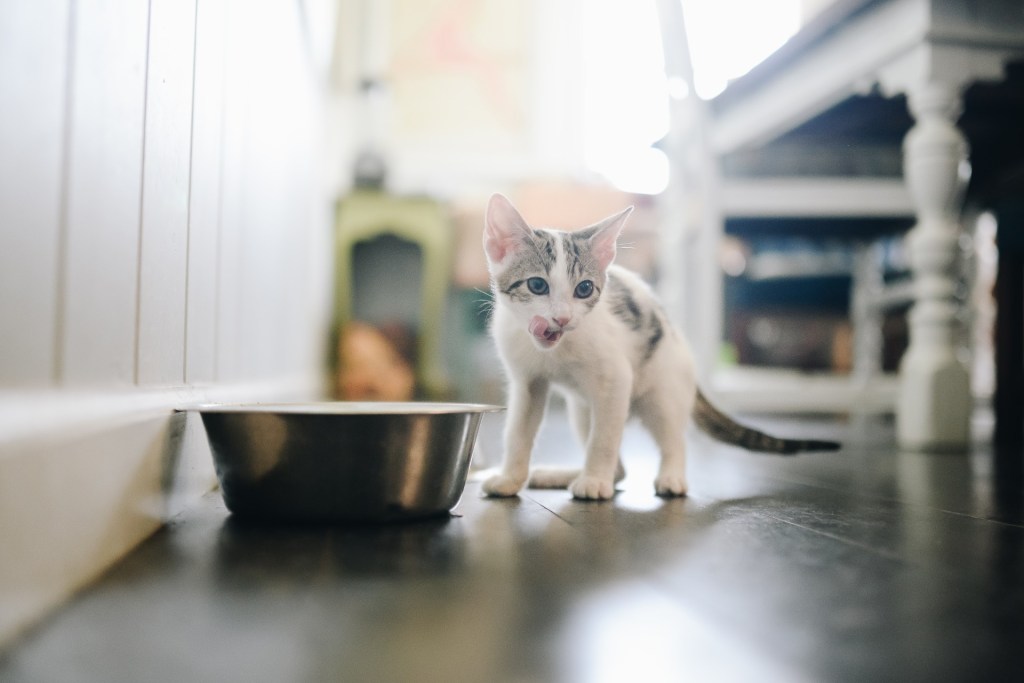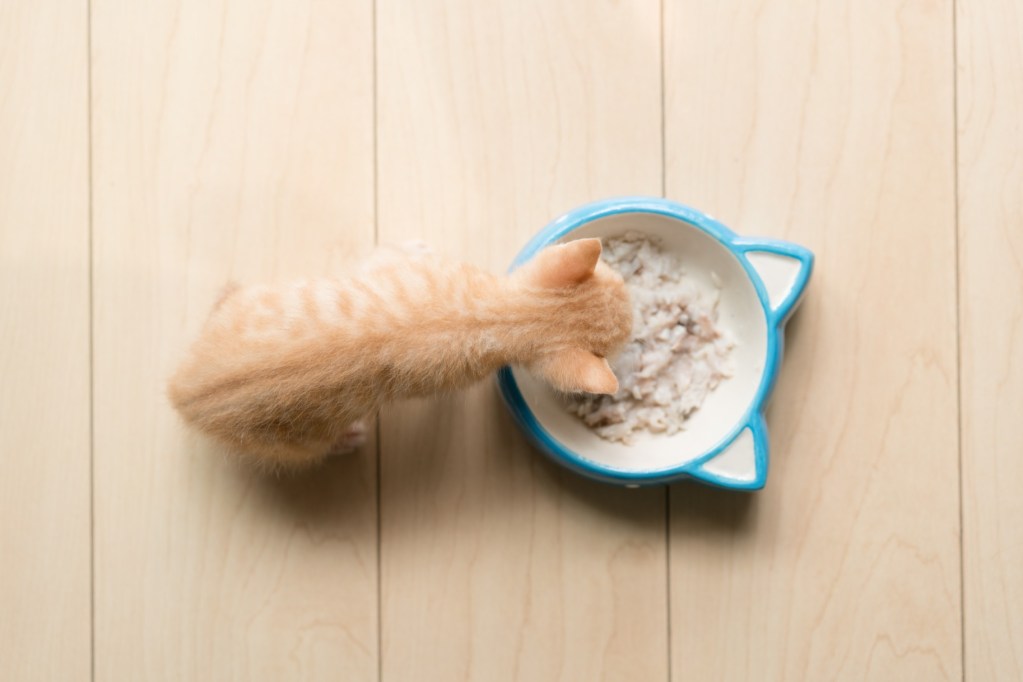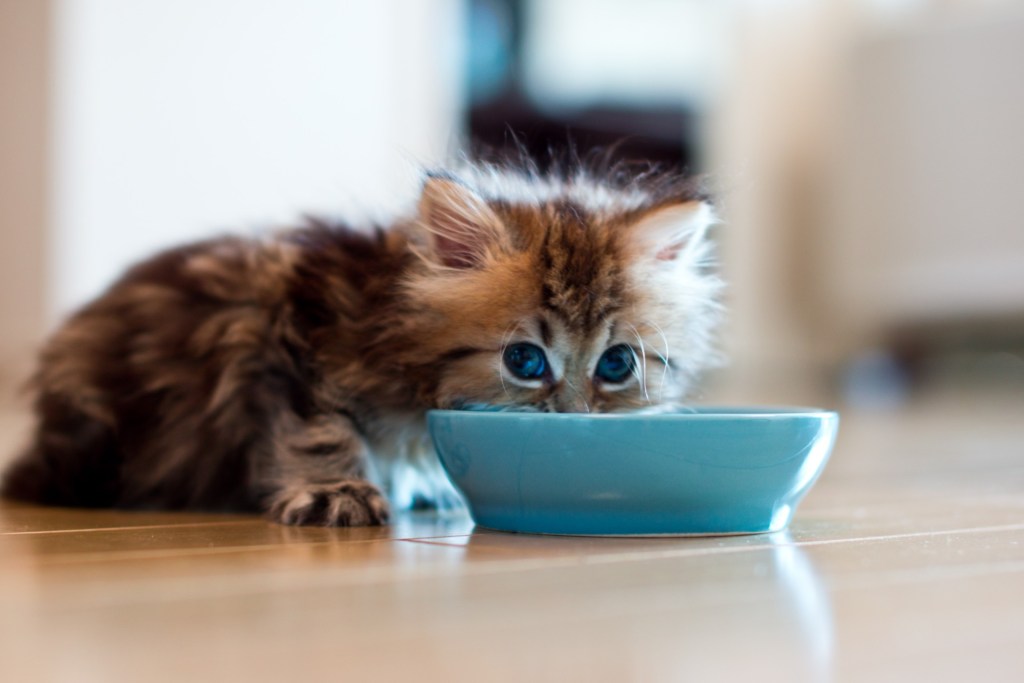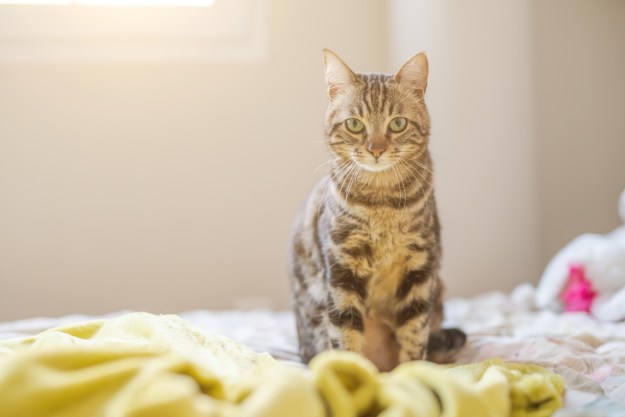Your kitten is an essential part of your life, and a great way of taking care of your furry friend is with a conscientious feeding program. Make sure you have the right tools for your pet’s health. Come up with a logical, functional plan for ensuring a proper cat feeding schedule.
Your kitten will need more fuel for his growing body than an adult cat. Here are some suggestions for how to feed your kitten so he stays healthy and maintains the proper weight.
The right kinds of cat food
You can’t just throw down adult cat food and expect your kitten to have enough to eat. Your kitten has different needs than an adult cat, so feeding the same food won’t get the job done.
Young kittens may benefit from soft food as their teeth grow and come in, but dry food doesn’t go bad as quickly as wet food. Wet foods offer more moisture content, but dry foods help kittens gain proper weight easier due to the carbohydrate content.
Your schedule can also help determine wet or dry foods. If you have to leave food out for your kitten during the day, dry food is the way to go. If you are home to clean the dish right away, wet food could be a better choice.

How often to feed kittens
- Kittens will need to get meals up to three times a day in the beginning. If your pet is under the age of six months, this is the right way to feed your kitten. The serving sizes will depend on your food’s recommended amounts as well as what your veterinarian says to do.
- Once your kitten reaches six months, most cats require two meals a day.
- When a cat reaches maturity, they should be fed once or twice a day.
Consider the types of food you’re feeding your kitten and choose only high-quality foods that have been tested. Cheap foods require more servings to give your kitten everything he needs to grow healthy and strong. The downside is your cat could gain weight too quickly on poor quality foods.
A feeding schedule is essential to help control your kitten’s weight and to establish good mealtime habits. Kittens will need to know what to expect around mealtimes, so consistency is key here.
Eating three times daily is ideal, so choose a specific time of the morning, afternoon, and evening to spread out those calories and nutritional requirements. Split up the daily portion size into three parts to ensure that your kitten doesn’t receive too many calories.

Develop a relationship with your vet
Your vet is a valuable resource to ensure that you have the right feeding protocols for your new kitten. Your vet will determine the kitten’s health and offer advice for the type of food as well as portion sizes.
If your kitten seems to be gaining too much weight, or alternately not enough, your vet can determine the underlying cause and help you develop a plan. This ensures that your kitten grows up to be healthy.
Frequently asked questions
Let’s take a look at some of the most common questions people have about feeding a kitten.
- How often should you feed a 7-month-old kitten? Check with your vet about your kitten’s health, but a 7-month-old should be transitioning to an adult feeding schedule of one or two times per day.
- Can you overfeed a kitten? Up to about 3 months of age, it’s difficult to overfeed kittens because they’re doing so much growing and have so much energy. You’ll need to be prepared to change your feeding habits often until your cat reaches about 6 months of age.
- Should I leave food out for my kitten? Grazing can make it difficult later to determine if your cat is receiving the right amount of nutrients. It’s best not to leave food out, but you can put a bit of dry food in a bowl if your kitten seems hungry during the night. Ensure your cat is regularly eating during meal times and avoid food treats just before meals.
- How do I know if my kitten is overeating? While it’s hard to overfeed a small kitten, it is possible. One sign of overeating is diarrhea. A kitten’s digestive system can’t handle the amount of food in its system leading to diarrhea. Yellow and runny is a mild form, but your vet should see the kitten immediately if it turns gray.
- Why does my kitten always act like it’s starving? Your kitten is doing a lot in those first few months of life. They have tons of energy and are growing quickly. Developing an eating routine helps your kitten learn that meals are coming and provides well-balanced nutrition throughout the day.

Getting on a schedule with your kitten
Whether this is your first kitten or one of many you’ve had in a lifetime, teaching your kitten that meals are always coming is a vital part of good eating habits. Your kitten is doing a lot in those first few years, so a regular feeding schedule is going to do a lot of good.
Work with your veterinarian to watch your cat’s growth and weight closely in those first few months. Early nutrition develops into a lifetime of health and well-being, so ensure that your cat has what he needs to be healthy and strong from the beginning.
Adapt to your growing kitten’s nutritional needs and be consistent. The most critical piece of this puzzle is a continual dedication to your kitten’s health. With that in place, your kitten should grow up happy.
Editors' Recommendations
- How to help cats inside car engines … before it’s too late
- How to tell if your cat is a Maine Coon mix (and why you should care)
- When do kittens start eating food? Know the facts for your fur baby’s health
- When do kittens’ eyes change colors? The answer is so cool – here’s what to know
- This video of a confused kitty discovering a cat water fountain is adorable



